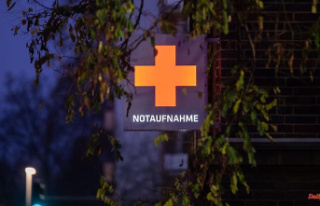Tiktok is now spilling over into almost all areas of life - but the music industry in particular is feeling the impact of the viral hits on the video platform. The social network is fundamentally changing how music is produced - and which hits make the charts.
Anyone looking at the charts lately could get a feeling of déjà vu: Songs like "Running Up That Hill" by Kate Bush and "Dreams" by Fleetwood Mac, which were still released on CDs 20 to 40 years ago, are climbing now at the top of the Billboard 100 charts. While Kate Bush's success is also due to the new season of "Stranger Things", a social network plays a major role in giving old music a boost: what goes viral on the short video and music platform Tiktok shoots up the charts.
Social networks have dominated many areas of real life for years: politicians are increasingly using Twitter for official press releases. Stars publish just one Instagram post and the whole world knows who the new lover is or what the newborn child looks like. These platforms have an incredible power to steer the public debate - so the digital world is spilling over more and more into real life.
But with Tiktok, this takes on a new dimension. The effects of the app, especially on young people, have already had serious consequences: small children have died from so-called "Tiktok" challenges - i.e. bets or challenges. In Italy, the app was even blocked for certain users after a 10-year-old girl died in the "Blackout Challenge". In this "challenge," users should suffocate themselves to get a high from the restricted oxygen supply to the brain.
This immense influence of the app on real life is particularly evident in the music industry. This is where Gen Z show they have the power to quickly get old songs back on the charts. Most users discover songs that were released before their time - and revive them through viral videos. The Fleedwood Mac song was made a trend by Tiktok user "420doggface208". In the video, he crosses the street on a skateboard, drinks juice and sings to "Dreams".
The video has been viewed more than 50 million times - triggering a flood of similar videos. In the three days after the video goes online, the song has been played 2.9 million times on streaming platforms like Spotify and Apple Music in the US - and climbed to number 24 on the Spoitfy charts. After band drummer Mick Fleetwood recreated the video himself, the song rocketed up the charts again, racking up 8.47 million plays on streaming platforms in one week - more than ever before.
This pattern has been repeated countless times over the past few years: "Potential Breakup Song" by Aly
But the platform does not only have an enormous push effect for old songs. So today it's almost impossible for a newcomer in the music industry to produce a best-selling song without experiencing the "viral" effect of Gen Z users on Tiktok. This causes a lot of criticism from musicians who don't necessarily want to produce songs just for short videos.
The singer Halsey shared a critical message with her followers on Tiktok: "I have a song that I love and want to release as soon as possible," wrote the musician, "but my record company won't let me." Despite eight years in the music industry and over 165 million records sold, Halsey said, "My record company says I can't release the song unless they can fake a viral moment on Tiktok." Other musicians also agree with this criticism: "Everything that record companies want is Tiktoks," wrote the musician FKA twigs in a post on the platform that has since been deleted.
But record labels often can't help but rely on Tiktok for viral moments. Because the social network has changed the entire music industry. Most users - it's estimated that more than 65 percent - who hear a song on Tiktok go to Spotify and listen to the full length of the song. And in times of digital music, the streaming numbers on Spotify are crucial for record companies.
That's because Spotify pays artists and record companies based on their share of the total streams, music journalist Elias Leight explains in an interview with US media VOX and The Pudding. That means if a song makes up 0.0001 percent of Spotify's total streams, that's how much of the streaming platform's revenue goes to the artist or record label. And viral hits on Tiktok account for an increasing percentage of total streams. "If you have a really big hit that hits 1 billion streams in six months, the payment from Spotify's share increases," explains Leight.
As the big record labels get fewer and fewer of the Spotify payouts - more and more artists are able to launch successful music careers without a label - they are even more eager to go after the big viral hits to increase their payouts again. "In a way, Tiktok is great for the labels. They sit at the top and watch tracks pop up, and if they get it at the right time, they can probably make their money back with a song," Leight told VOX and The Pudding further.
The Tiktok machine can also be a boon for artists. Artists like Olivia Rodrigo, Lil Nas X or Jvke owe their careers to the platform alone. But the careers are usually not permanent. Building profiles with millions of followers can take years, and the recipe for a viral hit isn't as easy as many think. And when the right concept is thought of and a video finally goes viral, the trend often doesn't last more than a few days, at most a few weeks. "Tiktok fame comes and goes very quickly," says Jvke, who landed a hit with "Upside Down." After all, the musician is touring through festivals in the USA this summer. However, it is doubtful whether there will be tracks from him in the Spotify "Viral 50" playlist next year.












